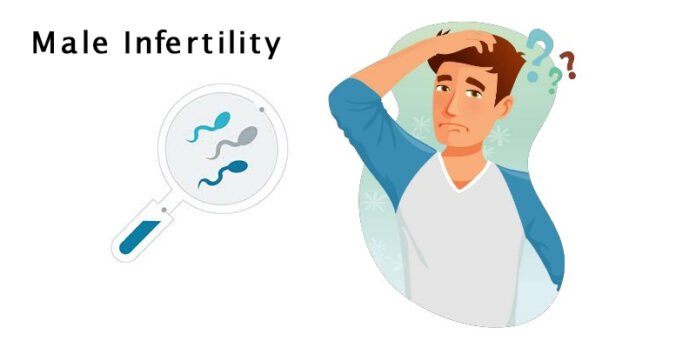Infertility is a problem that plagues many couples today. In fact, about one-third of infertility cases are due to problems with the male partner. If you are having trouble conceiving, fertility tests for males can help to determine the cause of infertility and help to get started on treatment.
Causes Of Male Infertility
Table of Contents
The process of male fertility is difficult to understand. The following must occur for your partner to be pregnant:
You must have strong sperm.
During puberty, the male reproductive organs develop and develop. At least one of your testicles must be working properly, as well as testosterone and other hormones that stimulate and maintain sperm production.
Sperm must be delivered to the semen.
The delicate tubes carry the sperm until they are mixed with semen and ejected from the penis.
The sperm count in the semen must be adequate.
If the quantity of sperm in your semen (sperm count) is low, the chance that one of your sperm will fertilize your partner’s egg is reduced. A low sperm count is defined as less than 15 million sperm per millilitre of semen or less than 39 million per ejaculate.
Sperm must be able to function and travel.
If your sperm’s (motility) or ability to function is abnormal, it may not be able to reach or penetrate your partner’s egg.
Medical causes
Male infertility can be caused by a variety of health issues and medical treatments, including:
Varicocele
A varicocele is a swelling of the testicular vein drainage system. It’s the most frequent type of reversible male infertility. Although the mechanism behind varicoceles causing infertility is unknown, poor blood flow may be involved. Varicoceles decreases sperm count and quality in men.
Infection
In some cases, infections can harm sperm production or function, or induce scarring that obstructs sperm flow. Some sexually transmitted infections, such as gonorrhoea or HIV, can cause epididymitis (epididymitis) or orchitis (orchitis). Although some infections can induce persistent testicular damage, most of the time sperm may be retrieved.
Ejaculation Problems
Retrograde ejaculation occurs when semen enters the bladder rather than leaving the penis tip. Retrograde ejaculation can be caused by a variety of conditions, including diabetes, spinal injuries, medication usage, and prostate surgery.
Antibodies that attack sperm
Sperm are viewed as harmful intruders by anti-sperm antibodies, which mistake them in an attempt to eliminate them.
Tumours
Cancers and non-cancerous tumours can damage the male sexual organs directly via glands that produce hormones associated with reproduction, such as the pituitary gland, or for unknown causes. In certain circumstances, removing cancer surgically, radiation therapy or chemotherapy may impact a man’s fertility.
Undescended testicles
One or both testicles fail to descend from the abdomen into the sac that usually contains them during fetal development in some males (scrotum). Men who have had this issue are more likely to be infertile.
Hormone imbalances
Infertility can be caused by testicular problems or an issue with one of the other hormone systems, such as the hypothalamus, pituitary, thyroid, and adrenal glands. Male hypogonadism (low testosterone) and other hormonal issues have a variety of possible underlying causes.


